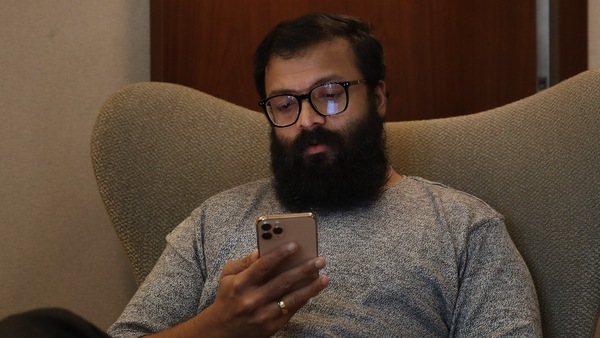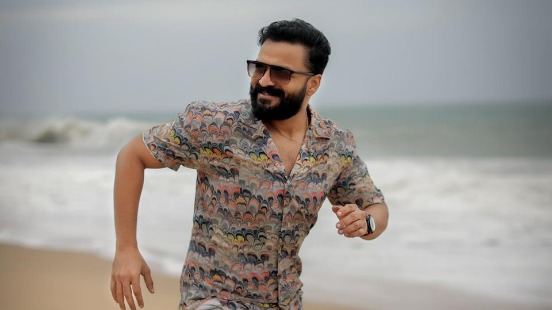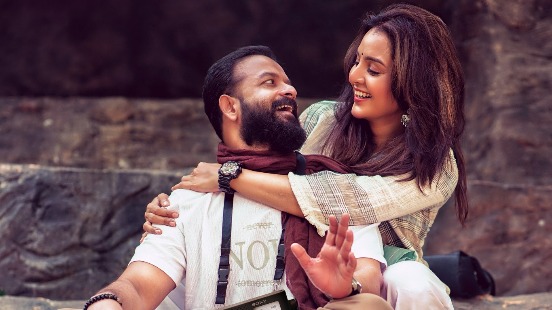Exclusive! Jayasurya: The way I choose my films now is different from how it was before the pandemic
The award-winning Mollywood actor talks to us about his shift in perspective during the pandemic and his upcoming movies such as Ranjith Sankar’s Sunny, Prajesh Sen’s Meri Awaaz Suno, Nadhirshah’s Eesho and Rojin Thomas’ Kathanar

Last Updated: 01.15 PM, Sep 29, 2021
When actor Jayasurya talks about his roles as an aspiring musician in Ranjith Sankar’s single-character film Sunny and as a unique RJ in Prajesh Sen’s Meri Awaaz Suno, it becomes crystal clear why the filmmakers consistently choose him as their lead. Just like his acclaimed performances in Vellam and Njan Marykutty, if Jayasurya’s answers are anything to go by, it would be hard to find the star in these films as he seems to have once again effortlessly slid into the skin of these characters.
The actor also tells us that the pandemic has altered his perspective in terms of how he views cinema now. In a candid telephonic conversation with OTTplay, while the actor was driving to Wagamon for the shoot of his new film John Luther, Jayasurya talked about his upcoming movies and what he is looking for in his films now.
You have collaborated with Ranjith Sankar again for Sunny, which is a single-character film that was shot during the pandemic. It must have come with its set of challenges, but if you were to single out one of them, what would it be?
I think the thought of doing a movie with just one character itself was different. Also, I think it’s a film that had him delve deep into his solitude and often creativity blooms when you are alone. All the films that Ranjith and I have done have been different; there’s an experiment factor in all of them. For instance, if you take Punyalan Agarbatties, it’s about a man who makes agarbatties from elephant dung. Su.. Su.. Sudhi Vathmeekam is again a movie about a person with a speech impediment, how do you make it a commercial film? Njan Marykutty was about a transgender and Pretham had me playing a mentalist – so all these films had me essaying extremely varied characters.
Sunny is about a Dubai-based man who aspires to be a musician. It’s about his emotional travel, but how do we convey it with just him? We could have done it in a short film but the challenge was to make it a feature film. Having seen the final product, I am happy with it.
Compared to the earlier roles in the films you mentioned, for which you had done extensive preparation, did you have to do any sort of background work to play Sunny?
There might have been some preparation that was happening on a subconscious level. It might have been going on during the script discussions. It’s like when a child is born, the father doesn’t have a particular plan as to how to love him; he can love the child beyond anything that he has been prepared for. It’s the same with each character.
When you have just a single character on screen for about 110 minutes, what were the considerations that Ranjith and you had kept in mind while ensuring that it must also be engaging to the audience?
I am probably the only person in the world to have acted alone in his 100th film. That’s a huge blessing. If we had done it as just a gimmick, the movie wouldn’t have had a soul. But when all of us collectively wished to come up with something different, it also motivated us to take up that challenge. Though we are making the film, we are also those who are watching it. So, we wanted to ensure that it doesn’t bore the audience and it progressed at an engaging pace. The movie has all of those elements.
Did you also factor in the freedom that a space like OTTs would provide for films such as these?
Subconsciously, it might be there in all of our minds because OTTs have given more freedom in terms of our thoughts for the films. It does allow more room for experimentation in writing, acting and filmmaking. That’s probably why a lot of people now say, “Even if this film doesn’t release in theatres, it would work well on OTT.”
However, if you see Sunny in theatres, I am sure it would have a totally different feel. While watching a movie in OTTs, there isn’t anyone else who could influence his or her opinion by saying there’s ‘a lag’ in the movie; people stream films based on their convenience.

You play a radio jockey in Prajesh Sen’s Meri Awaaz Suno. Almost 20 years ago, you had also worked as a TV anchor. How much did you draw from real-life experiences for playing that role?
A radio jockey or someone who interviews should first be a great listener. He or she might have prepared five or six questions for the interviewee, but the best anchors are those who are able to make follow-up questions based on what people are saying. Else, they would always be in a hurry to ask their next question.
Also, a good RJ is someone who can understand human psychology; he or she can pick the emotional state of the people they are talking with and is able to pass on positive energy. An RJ should never be judgmental and if people feel like they are talking to a friend, they are likely to open up. Right now, there are more talkers and less listeners.
RJ Shankar in Meri Awaaz Suno has his own philosophy. He is also confident about himself; if he gets a call, both the listeners and the talker would gain something after the conversation. To influence a person, sound is not important. Sound only supports his content and the light within him.

You are also working with Manju Warrier for the first time in the movie.
There are some people whom you have met only once during your journeys but you never forget them. Manju is someone like that. I don’t think anyone will forget her if they meet her once because, personally, I have found her to be extremely caring and full of positivity. Moreover, she’s a brilliant actress. If you give her clay and tell her what you want, she would create a sculpture out of it.
Eesho’s director Nadhirshah recently told us that during its shoot at a labour camp in Dubai, you had opted for a uniform that a labourer had been wearing for the scene, instead of a fresh and faded costume. He said as an actor you are willing to go to any length to play a role. How essential was that to play the lead character of Eesho?
That’s how I have seen the character, I don’t know if it’s preparation. The reason I did that was I got this fresh costume and the character is shown as someone who has been working there for a long time. If the audience would have watched that scene, they would have felt that the lead actor stands out. In some movies, you shouldn’t be able to differentiate the protagonist from the rest of the people in the scene. If people are able to spot the lead actor, then there’s Jayasurya in it; instead, if they aren’t able to pick him out, then the character is working.
So, when they brought me the costume, I felt it was a uniform designed for Jayasurya and that’s why I wasn’t interested. The person who gave me his uniform told me that it had been two days since he washed it, but I said it’s fine. The t-shirt that he was wearing has a character, it has the grime from the months or days that he has been working. The fresh t-shirt, no matter how much grease you paint over it, will only have so much life.
Also, it’s not the first time I am doing something like this. While shooting for Lukka Chuppi, my costume for the scene was a black t-shirt and jeans. But after wearing it, I couldn’t see myself as the character Raghuram. I told them I can’t play him wearing this.
The shoot was supposed to be in an hour and I became desperate. At that moment, someone with a beard was coming out of the bathroom. I wasn’t looking at him, I was observing his clothes, shabby kurta and matching trousers. He introduced himself to me as the film’s cinematographer Binu Bhasker. The first thing I asked him was, “If you don’t mind, could you please give me your clothes?” He said, “I have been wearing this since the morning and it’s got a stench.” I told that wasn’t a problem. I gave him my T-shirt and I was praying that his kurta fit me and it did. For the first two days of the shoot, I was wearing his kurtas till the costumer stitched new ones.
You are someone who slowed down in terms of the projects that you have been doing in the past few years. How much has the pandemic helped you reassess the films and bring in fresher perspectives?
After not doing a movie for a year, the perspective with which you view cinema would be different. How I view my profession is not the same as how I used to six months ago and that could be because of the changes in me. Consequently, the films that I will be choosing will also reflect that.
I am not doing a lot of movies that I had initially considered because I don’t think that’s what I want to do right now. A year later, even that would change. The way I am choosing my movies – the ones I want to watch and act in – is different from how it was before the pandemic.
So, what’s the priority right now? Is it big-budget movies, considering you have a Joshiy directorial and also Rojin Thomas’ 3D film Kathanar on the cards?
I don’t think the budget is a criterion. It’s like loving someone; there might be people who love an individual based on their financial assets but there are those who love and value the person. Similarly, for films to move an audience, all you need are moments. Even big films need these moments to win over the viewers.
Rojin’s #Home, for instance, wasn’t made on a big budget but it managed to win everyone’s hearts. So, when the same director makes a film with a budget of Rs 75 Cr, it’s a huge deal. What we want is to make it on the level of a Hollywood movie such as Avatar. I took the film to him even before he began work on #Home because I knew he could pull it off; it was based on how he treated Phillips and the Monkey Men. So, the budget is not the issue, the subject is.
What are your upcoming films?
I am set to begin the shoot of Abhijith Joseph’s John Luther. After that I will be teaming up with Chackochan (Kunchacko Boban) for a film and then there’s Joshiy sir’s movie and Kathanar.
Subscribe to our newsletter for top content, delivered fast.

